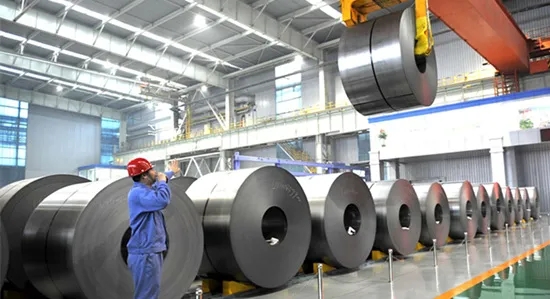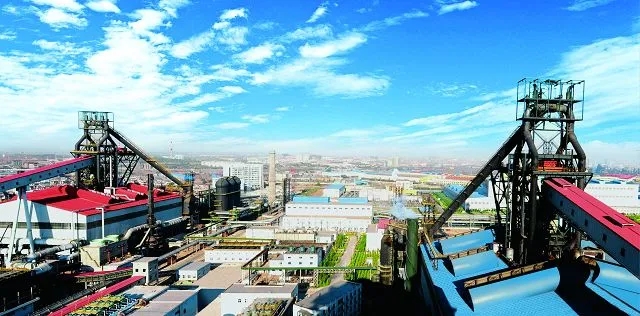by Gerber Group | Mar 3, 2021 | Commodities, Alloy surcharges, EN, Gerber Group, Raw materials
Riegel, February 03, 2021: How are alloy surcharges currently developing in the stainless steel sector? Where is nickel prices headed? What about availability, lead times and delivery times? Let’s look at the past weeks and the coming months of 2021.
Alloy surcharges: May 2021 now released

Stainless steel market on an upward trend
The market, especially for steel and stainless steel, is currently continuing its upward trend. Supply problems are being reported from the European, North American and in some cases also South and Central American steel markets.
Steel prices have increased significantly
Prices for steel and stainless steel have increased significantly. Some are even talking of a doubling. Delivery times for European steel producers are already six months or more. – so at least in August (Source).
Market safeguard measures pose problems for processing industry
What is currently bringing the review of the Safeguard measures by the EU Commission and the political events surrounding it into focus in the steel world. There are now strong calls from the processing industry for an end to Safeguard (Source).
United States with all-time highs for steel
Steel prices in the United States are also reaching new all-time highs and availability is more than limited. The economy in the United States has rebounded and market sources told us that things are currently going crazy there and there is hardly any material to be had (Source).
South America also feels the rising prices
In South America, the consuming industry complains of the same suffering. Severe shortages. New material is not yet in sight. And prices are rising sharply. In between, one hears voices from time to time that want to talk down the problem. But at the moment, domestic steel producers are completely overwhelmed and cannot keep up with demand (Source).
What about stainless steel imports from Asia?
“Imports from Asia would currently be an alternative for many companies. But here, too, it is currently a question of readiness to make decisions and speed. And the right knowledge about where to get material and how to import it properly. This is where the real experts are currently in demand,” said Thorsten Gerber, CEO of Gerber Steel GmbH, about the developments on the import market and alloy surcharges.
Supply chain has not yet returned to normal
The supply chain to and from Asia has not yet fully recovered. There are still not enough containers available where they are needed. The shortage of ships and containers is also reflected in the price. Ocean freight rates have increased eightfold in some cases (Source).
European mills significantly increase alloy surcharges
Alloy surcharges are up significantly again for March 2021. Looking at Outokumpu’s alloy surcharges for 304 from November 2020 (Source) versus March 2021 (Source), they have increased by almost 28% (about 54 US cents). From February 2021 (Source) to March 2021 by 14 US cents alone.
Nickel temporarily at record level above $20,000/mt
On February 22, 2021, nickel briefly jumped above $20,000 per ton on the London Metal Exchange (Source). Shortly thereafter, it consolidated again and has since held steady between $18.000 and $19,000. Overall, the commodity market seems to be reorganizing. However, we currently see a trend further upwards.
Since the access to nickel is meanwhile also publicly disputed – e.g. from the European side before the WTO with Indonesia (Source) – and also the demand in China seems to be unbroken (Source), we assume that the prices will continue to rise. Nickel is not only a raw material for stainless steel or galvanized steel sheet, but is also increasingly used in batteries for electric vehicles.
These growing demands for nickel products are also expected to have a significant impact on alloy surcharges in the future.
Update: Nickel falls – Who is to blame? Nornickel or Tsingshan?
Since yesterday, Wednesday, February 3, 2021, also to our surprise, nickel prices on the LME have fallen by up to 8.5% and also on the SHFE by over 6%. We had already seen a consolidation in the nickel market over the last few days, but such a sharp and surprising drop had to have a specific trigger. Time for an analysis.
Ferro Molybdenum : Continued steady upward trend
The price of ferro molybdenum had already risen significantly in 2020 and has now used the first few months to continue its steep upward trend. Currently, it stands at $29,250 per ton. (Source)
Ferro Chrome: Concerns about availability in China
The major Chinese stainless steel producers have very recently increased March prices for high-carbon ferro-chrome tender (Source). After Ulanqab, a major ferro-alloy production hub in Mongolia, China, shut down all small furnaces in January 2021 (Source), concerns and uncertainties about the supply of ferro-chrome in China had already arisen. And had caused Chrome prices to rise.
Scrap: Further price increase or expensive stability?
Prices for steel and stainless steel scrap remain high and reasonably stable. However, initial media reports from March indicate that scrap prices could rise even further (Source | Source| Source).
Foreign exchange: Dollar currently at an advantage
The exchange rate between the euro and the dollar is still a bit unsteady but has been hovering around $1.20 since the beginning of February. The uncertainties in Europe and the upcoming stimulus program in the United States, are likely to work out rather to the dollar’s advantage.
From the overall development, it can be assumed that import prices for steel and stainless steel will also continue to rise.
Ferro Vanadium: Prices jump significantly
Vanadium prices have been rising for a while, but they took a whopping jump from February to March 2021 (Source). Since vanadium seems to be attractive for energy storage, this trend is likely to continue (Source).
Iron ores: Weakness in iron ore? Figures say otherwise
Iron ores, which are often said to be weak, also have higher prices at the moment. Iron ore currently stands at around $173 per ton. At the beginning of February, iron ore had still received a damper and had fallen to $148 (Source).
Ferro Manganese: Prices have stabilized after fall in 2020
After having plummeted in 2020, ferro manganese prices have now settled at a stable level (currently around $4830 per ton). Manganese ore is mainly used for the production of steel and iron (Source).

Conclusion and Outlook: Consolidations in the commodity market
If you look at the overall commodity situation and the available information, it speaks a pretty clear language from our point of view.
The commodity markets are currently in a consolidation phase. As soon as this is completed, this consolidation will form the basis for further price increases. This will also further increase the alloy surcharges in the coming months.



















